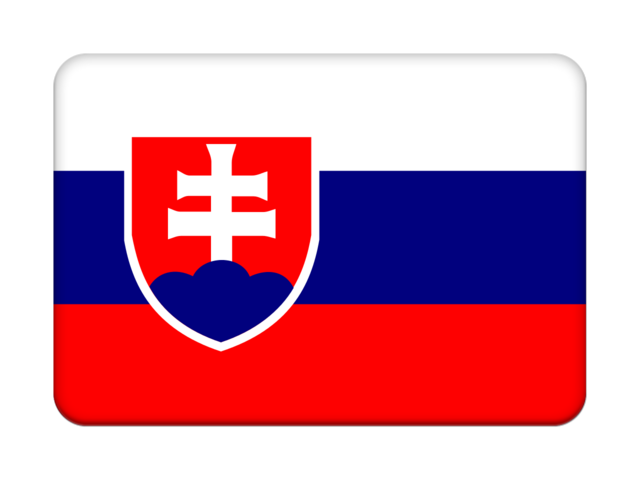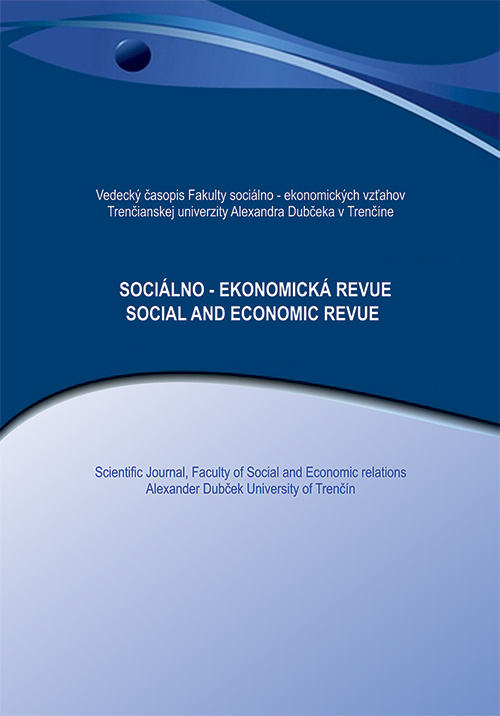PUBLIC ELECTION AS AN IMPORTANT PART OF DEMOCRACY
Public election is an important element of modern democracy. It is an achievement of democracy built on the State power sovereignty. This power is derived from the sovereignty of citizens, thus enabling citizens to participate in governance. Governance can be direct or indirect, based on a functioning system of regular free elections. The present article points to a change in preferences and degree of use of the right to participate in the presidential election as a voter. It also maps the current situation and expectations of Slovak citizens in relation to the new Head of State. For this purpose, we conducted an opinion survey in which we followed the respondents' attitude to the issue of the Head of state. Therefore, we try to draw conclusions from the results in this article.
Vydanie: 2019/3 Strany: 47-53 Klasifikácia JEL: D72, H70, H11
DOI:
Kľúčové slová: Constitution, Democracy, President, Public election, Voter
Sekcia:
Kontakty:
Martina, Jakubcinova, Ing., PhD., MBA
Alexander Dubcek University of Trencin,
Department of Public Administration and Regional Economy
Studentska 2, 911 50 Trencin
martina.jakubcinova@tnuni.sk
Literatúra:
ACE. (2015). Civic and Voter Education. [on-line] [cit.: 2019-10-03]. Retrieved from: https://aceproject.org
Acevedo, M., Krueger, J. I. (2004). Two Egocentric Sources of the Decision to Vote: The Voter's Illusion and the Belief in Personal Relevance. Political Psychology. 25(1), 115-134.
Brooks, Ŕ. (2018). The Importance of the Educated Voter. [acc.: 2019-10-03]. Retrieved from: https://facingtoday.facinghistory.org/the-importance-of-the-educated-voter
Cartwright, M. (2018). Athenian Democracy. [on-line] [acc.: 2019-10-03]. Retrieved from: https://www.ancient.eu/Athenian_Democracy/
Downs, A. (1957). An Economic Theory of Democracy. New York : Harper, ISBN 9780060417505
Focus. (2019). Prieskumy preferencií. [on-line] [cit.: 2019-15-03]. Retrieved from: www.focus-research.sk
IDEA. (2019). What is Compulsory Voting? [on-line] [cit.: 2019-10-03]. Retrieved from: https://www.idea.int/data-tools/data/voter-turnout
Kútik, J., Klierová, M. (2013). Verejný sektor. Trenčín: TnUAD, 2013. 190 p.
Kútik, J., Mitický, D. (2011). Verejná správa a verejná politika. Sociálno-ekonomická revue. 9(2),.57-67.
Malý, I., Špalek, J., Hyánek, V. (2012). Veřejná volba (PublicChoice). Brno: ESF MU Brno, 2012. 63p.
Meiggs, R. (2013). Cleisthenes of Athens. Greek Statesman. Encyclopedia Britannica. [on-line] [acc.: 2019-10-03]. Retrieved from: https://www.britannica.com/biography/Cleisthenes-of-Athens
MV SR. (2019). Voľby prezidenta Slovenskej republiky. [on-line] [cit.: 2019-10-03]. Retrieved from: www.minv.sk
OSCE. (2012). Handbook For The Observation Of Voter Registration. [on-line] [cit.: 2019-10-03]. Retrieved from: https://www.osce.org
Štatistický úrad SR. (2019). Výsledky prezidentských volieb 2019. on-line] [cit.: 2019-10-03]. Retrieved from: volby.statistics.sk
Tuck, R. (2008). Free Riding,Cambridge. MA: Harvard University Press, 2008. 232 p.
Tullock, G. (2008). Public Choice. The New Palgrave Dictionary of Economics. London: Palgrave Macmillan UK. 730p.
Ústava Slovenskej republiky č. 460/1992 Zb.
Zákon č. 180/2014 Z. z. o podmienkach výkonu volebného práva


